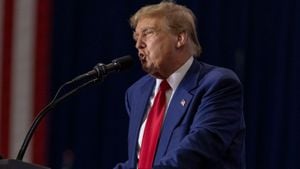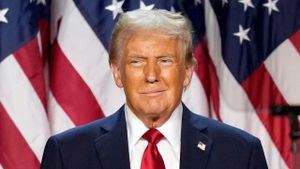Saudi Arabia is back at the center of climate negotiations, wielding its influence with remarkable acumen at COP29. The recent climate talks held in Baku, Azerbaijan, turned out to be yet another test of the nation’s ability to navigate complex negotiations without losing sight of its fossil fuel interests. After two weeks of often contentious discussions, Saudi Arabia, along with its allies, successfully blocked any advances on fossil fuel commitments, reversing some of the progress made at previous summits, particularly COP28.
Just last year, at COP28, Saudi Arabia surprised many by agreeing to cooperate with nearly 200 nations on steps to phase out reliance on fossil fuels. This seemed to indicate a potential shift in strategy, one aimed at adapting to the increasing urgency surrounding climate change and the global call for sustainable energy solutions. Fast forward to COP29, and it appears they’ve taken several steps back, clinging tightly to fossil fuel as their lifeblood.
During negotiations, Saudi negotiator Albara Tawfiq reiterated the country’s stance, stating, “The Arab Group will not accept any text targeting specific sectors, including fossil fuels.” This effectively signaled to participating nations just how committed Saudi Arabia was to safeguarding its oil-driven economy.
The discussions did yield some outcome—particularly, pledges to increase climate finance aimed at developing nations, with a commitment to $300 billion annually by 2035 to help combat global warming. Yet, the absence of any firm commitment to reduce dependence on fossil fuels rendered this financial agreement somewhat hollow, particularly for those who argue against the status quo.
Over the years, Saudi Arabia has honed its abilities as a key player at the COP meetings, learning to employ the dense and often cumbersome negotiation methodologies to its advantage. Veteran climate negotiators note the country’s deep familiarity with the procedural quirks of the COP meetings, utilizing subtle diplomatic maneuvers to complicate proceedings or delay discussions on fossil fuel transitions.
Saudi Arabia’s recent finesse at these talks poses significant challenges as preparations begin for COP30, which will host nations under new leadership. With a progressive government slated to take the helm and clearly aiming for ambitious emission cuts, the upcoming talks could present more obstacles for Saudi Arabia, especially as the dynamics shift with the potential influence of another new U.S. administration under Donald Trump.
The crux of the issue rests with the COP’s principle of consensus, where every participating nation has to be on board for agreements to pass. This creates opportunities for oil-producing nations like Saudi Arabia to derail or stall discussions. Many negotiators express frustration at the apparent reluctance to confront the Saudis directly, often tiptoeing around their influence within the discussions.
This year, Saudi Arabia applied its well-practiced strategy to divert focus from fossil fuel discussions by framing the agenda primarily around financial frameworks. One notable tactic was to champion the case for focusing on finance first, arguing for prioritization rather than mixing it with the contentious topic of fossil fuels. They sought to establish this precedent by contending, as some delegates put it, “that this meeting should be solely finance-focused and not entangle the discussion with extraction methods. ”
By playing this card, Saudi representatives illustrated their commitment to stalling any discussions about emission cuts—reinforcing their penchant for maintaining the status quo. Alden Meyer from E3G pointed to this strategy, noting, “They’ve been a dog with a bone trying to block discussions around mitigation without addressing adaptation.”
Even during COP29, Saudi Arabia’s tactics were evident, particularly as negotiations drew to their climax. While developing nations pushed hard for concrete commitments to phase out fossil fuels, the Saudi delegates maneuvered behind the scenes—seizing opportunities to assert their preferences more forcefully, muddying the waters whenever possible.
While delegations from several nations expressed disappointment over the negotiations’ conclusions—especially their failure to include clear references to fossil fuel transitions—Saudi Arabia emerged with their interests largely intact. This win for the oil-rich kingdom, laden with significant geopolitical ramifications, could reshape priorities and strategies going forward.
Today’s climate discussions are largely shaped by the stark realities of funding and finance. While climate finance became one of the few bright spots of COP29, it also underlined major divides between developed and developing nations. The debate over the financial agenda offers insight, as pressures mounted different stakeholders aimed to strengthen their positions on the global stage, often at the expense of more expansive climate action.
It’s evident rich and poor nations are using different lenses to view climate solutions. With wealth disparities creating tensions, the talks projected how nations like Saudi Arabia skillfully manipulate these tensions to frame discussions to their advantage. They successfully highlighted the discrepancy between what wealthy nations are willing to contribute versus what developing nations require to genuinely address climate issues.
The COP negotiations are always about compromises; each party seeks to protect their interests. This year’s discussions culminated with Saudi Arabia aligning with influential allies like China—driving home the message of fossil fuel commitment rather than concession. To navigate the divided waters of international diplomacy is becoming increasingly complex as emissions reach troubling highs globally, leaving many to wonder if collaborative agreements are possible at all.
Saudi Arabia’s persistence at COP29 will likely echo well beyond Baku. It reflects broader issues rippling through climate politics, underscoring how entrenched fossil fuel interests can infiltrate international agreements meant to promote sustainability. The tussles and negotiations are certain to provide lessons for the next forum, as nations prepare yet again to advance the discussion of climate action against heavy odds.
Despite the progress reported from COP29, it's clear at the heart of these discussions remains the struggle between old guard fossil fuel interests and new-age renewable commitment. The potential shift toward more ambitious climate strategies rests not only with negotiations among nations but also with how seriously vested interests like Saudi Arabia choose to adapt to changing public and international sentiment toward climate action.
Even as COP30 approaches on the horizon, the groundwork is laid for what could be highly animated discussions. Has it reached the point where Saudi Arabia alone can no longer hold back global momentum on climate change, or will they find ways to integrate their fossil-fuel-heavy philosophy with the rising tide of new climate strategies? Only time will tell how these dynamics evolve as nations prepare to enter the next round of negotiations.



